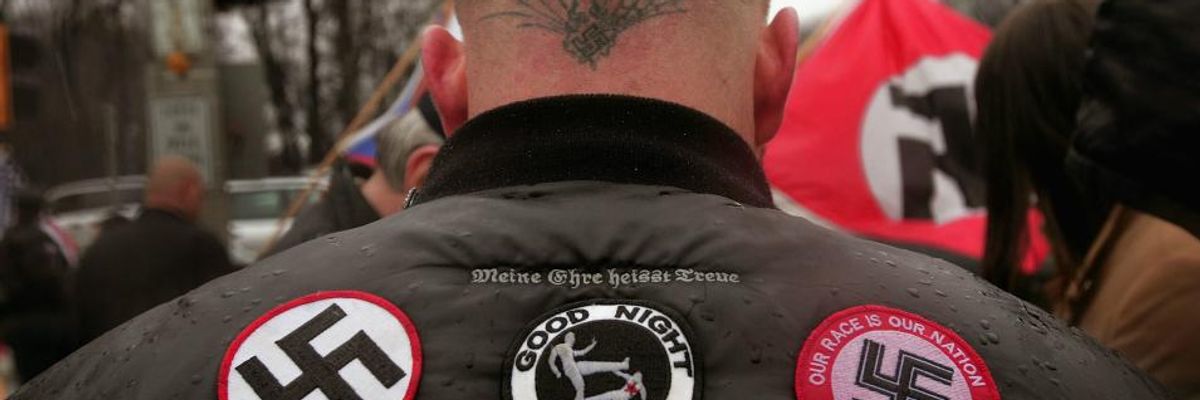Can it happen here? Absolutely it can. Even in a liberal bastion. A few weeks ago, a handful of white supremacists marched into a bookstore in Washington D.C., temporarily disrupting a talk by Jonathan Metzl, the author of Dying of Whiteness: How the Politics of Racial Resentment is Killing America's Heartland.
To put this in context, this was in Politics and Prose, in hip DuPont Circle, during an Antiracist Book Festival, on the same day that a 19-year-old white supremacist shot up a California synagogue, killing one person and injuring three others.
Around the same time, two members of the same group, calling itself the American Identity Movement, dressed up in clown suits to disrupt a story hour for kids led by drag queen performers at a New Orleans public library.
These aren't isolated events. The Washington Post reports that white nationalists have been targeting bookstores and libraries across the country for a while, in one instance, going so far as to threaten to burn the store down. Elsewhere, progressive groups are facing threats of violence and intimidation on campus; for example in Portland, where white so-called Patriot groups have targeted meetings of the DSA and the ISO and vandalized an office of the IWW.
It's not the hate that's new. It's the apparent sense of entitlement. Today's hate groups aren't flying-by night; they're out in plain sight, and not just in the media's backwaters but in the nation's capital.
As Metzl put it, today's racist bullies seem especially emboldened. And social media's a big part of that. In person, two guys in clown suits, or even half a dozen with a megaphone, aren't much of a threat, but in social media, stunts like these appear bigger than they are.
Uploaded to the web, videos of the book protests prompted messages of praise on Youtube and much online chatter from right and left. Zapped round the web, the intimidation factor is amplified and potential followers egged on.
Which makes an international initiative to curb the spread of hate online at least worth paying some attention to. The "Christchurch Call," a global pledge to combat online extremism unveiled by New Zealand Prime Minister Jacinda Ardern and French President Emmanuel Macron, is a commitment to work with tech companies to halt the spread of extremist content. It's far from a complete solution but it is a start. The US should sign on. President Trump hasn't of course. He sees no problem.
